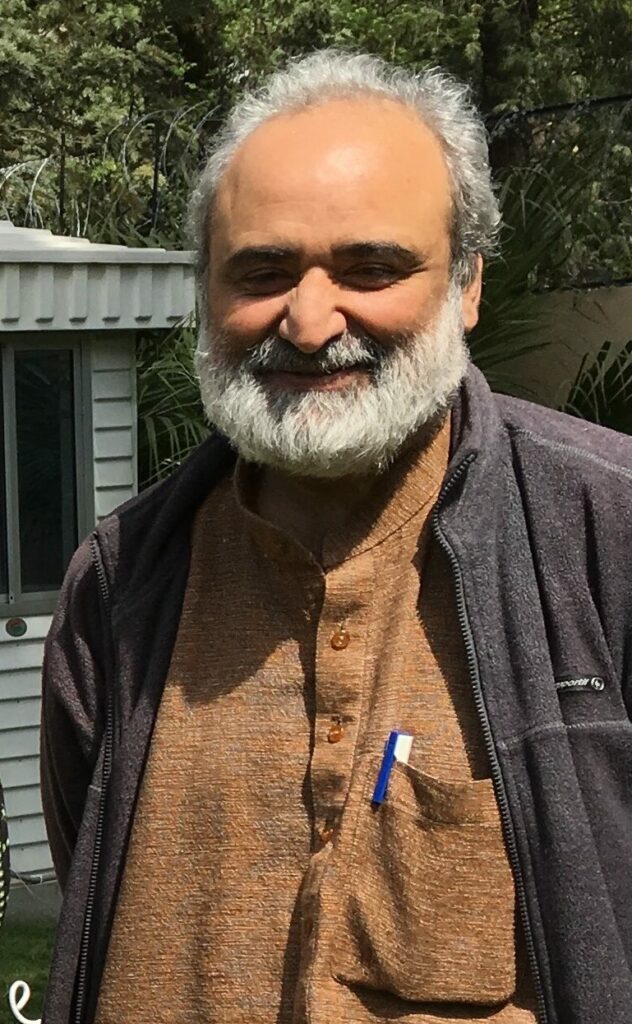By Wajid Syed

The Peshawar school massacre was one of the darkest days in the history of Pakistan, when on December 16, 2014 seven heavily armed terrorists stormed the Army Public-school Peshawar, Pakistan, killing 150 people, including 134 students.
All the wounded were taken to one of two hospitals, the Combined Military Hospital and Lady Reading Hospital. A day after this attack, my friend and I visited the Lady Reading Hospital to see if we can be of any possible assistance. The security was tight, and although we were able to meet the management, they turned us back since we did not have security clearance.
While we were standing in the parking lot thinking how we could help, we saw a senior staff nurse, whom we knew. She was in a terrible condition, so we approached her and it seemed as if she was looking for some good listeners. After greetings, we asked her to come with us and have a cup of tea in a nearby cafe.
The moment we sat down she said her mind had stopped working. The junior staff were asking her for advice but her mind was blank. She then told how she and her staff spent the previous day receiving all the dead–cleaning them, placing them in shrouds and coffins, and then managing the painful process of handing these bodies to their families.
As she spoke, all I did was to listen to her, reflecting where required. While talking she had three cups of tea and a number of samosas. She had not realized how hungry she was, as she had had no food or sleep since the incident yesterday.
As soon as she completed the narration of the complete ordeal, she stood up and said: “My brain has started working and I need to go to my unit to support my team, arrange food for them, and try to find replacements so they can take rest and regain their energies.”
We encouraged her to reflect on how different she felt now that she had had the chance to be listened to. And, because we could not meet with her staff, we suggested that she try to listen to her staff with empathy and reflection, just as we had done.
After the nurse left, my friend and I decided to leave. On our way to our car, a man approached us with his son in tow and asked for directions to the psychiatric unit. The young boy seemed lost like he did not know what was going on around him. The man was so distressed that we volunteered to help him. On the way to the psych unit, the father told us that his son was a survivor of the school massacre and that his other son was killed in the incident. The boy had been given sedatives by a local doctor, but when the effects of the medication subsided, the child would go into a frenzy and relive the horrible event. Again, we listened. This time to the father as he told his story, and we reflected when required.
At the unit, the doctors prescribed a higher dose of sedatives and advised the father that he must keep the child distracted so he does not recall the horror in which he lost his brother. According to them, with the passage of time, he will forget what happened and return to normal.
While we were accompanying them, my friend took care of the boy, and I listened to the father. When we accompanied them back to their car, the father thanked us and said he doesn’t know why but he felt better. He also gave us his contact number and invited us to his house.
Afterward, we contacted Dr. Patricia Omidian and discussed what had happened and what we did. We were also able to connect the family with a psychiatrist who specialized in dealing with children in such traumas. The pediatric psychiatrist advised us to meet the boy and listen to his ordeal with reflection as required, the same was advised for the whole family. In the meantime he would chalk out the psychological and psychiatrist assistance/intervention required. We played our part as advised, supporting this process until the psychiatrist started his regime/treatment.
It was at this point that we realized that we have very few trained mental health professionals and those we have are usually working in the Drugs Abuse Treatment Centers. We need psychologists and psychiatrists who can work with children who suffer from mental illness, traumatic events or abuse. We also need people trained to offer peer support (like my friend and I). What my friend and I learned from our experience is that even those who are not trained as therapists can make a huge difference in the lives of those who need a listening ear.